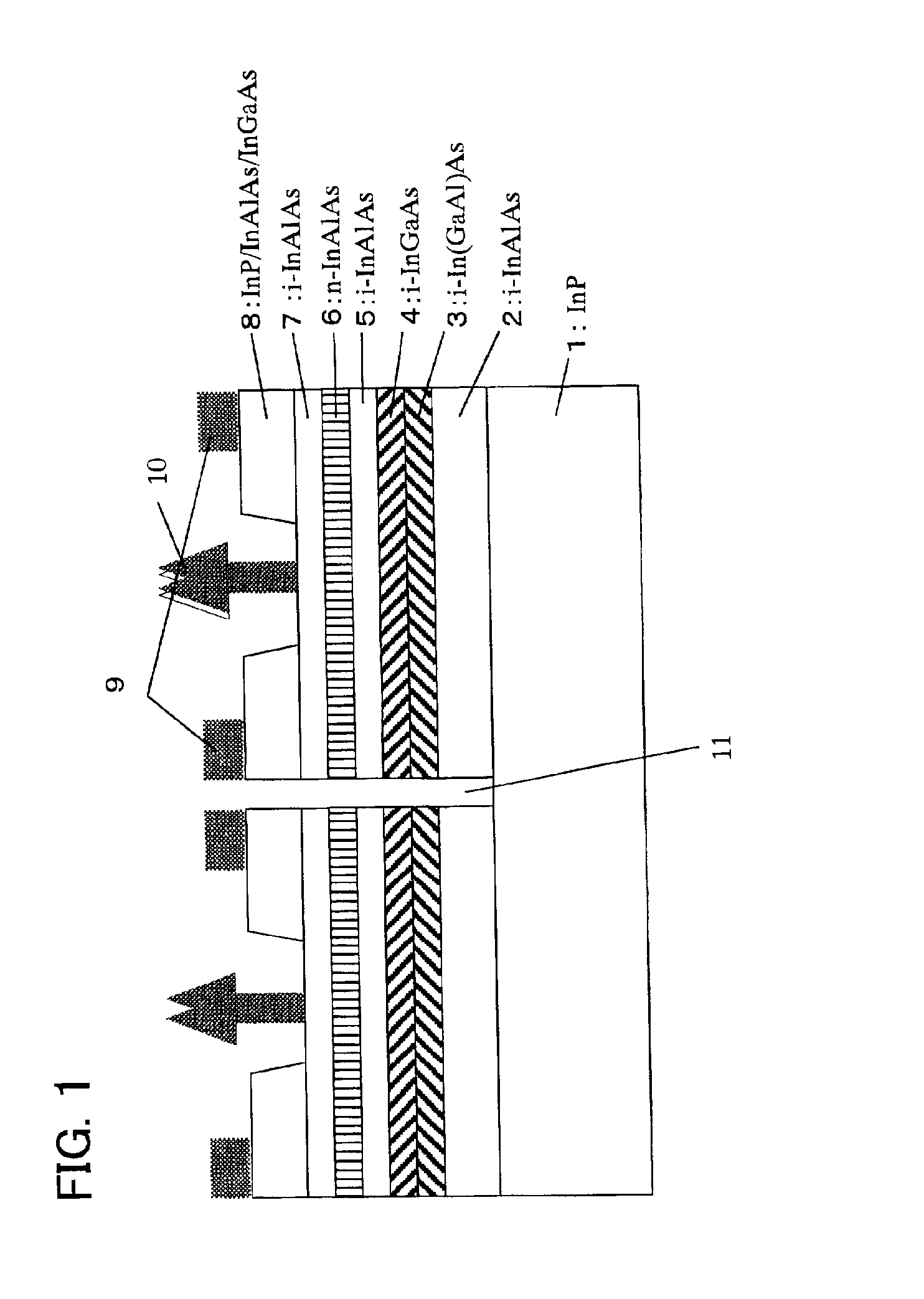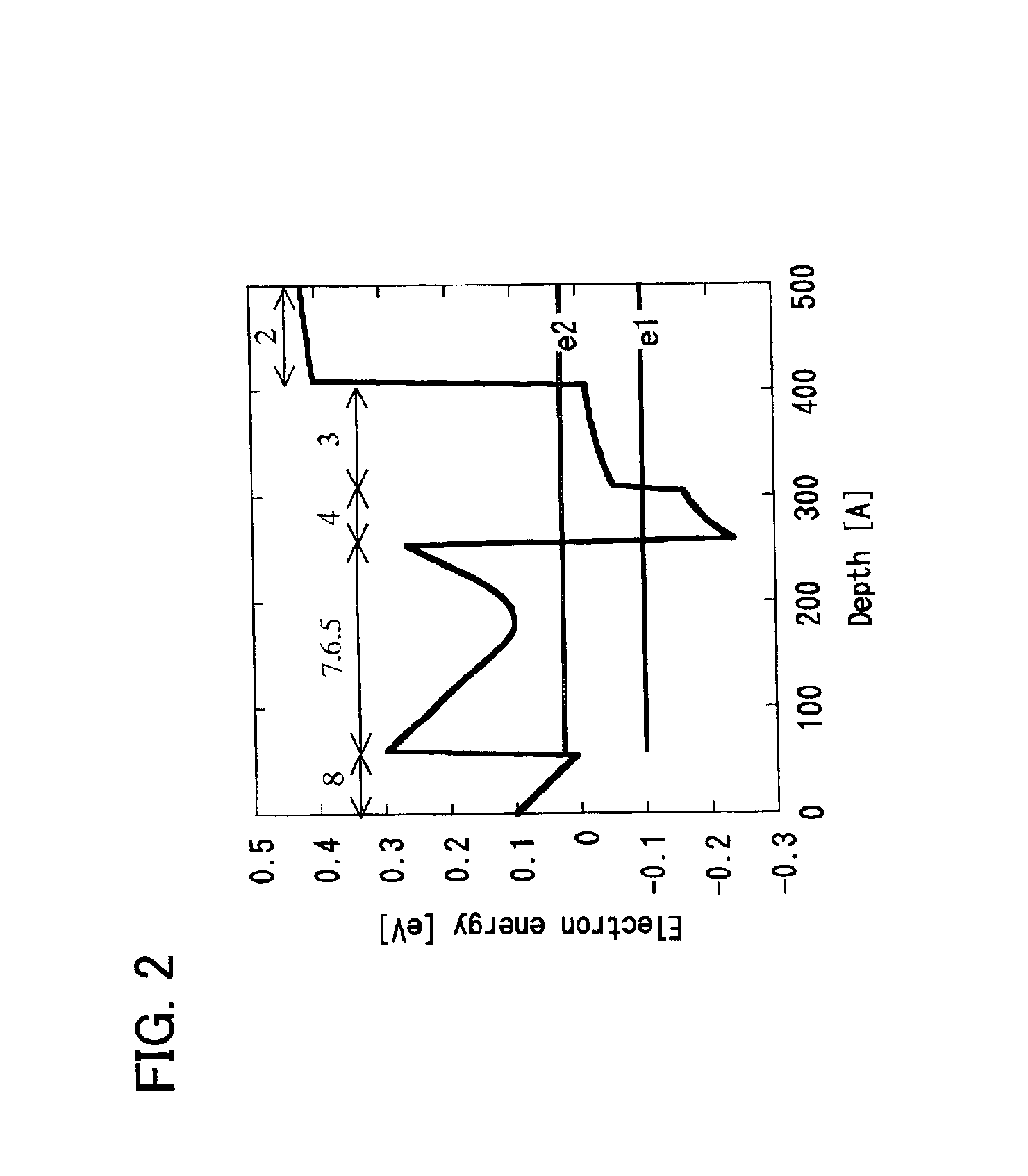Field-effect transistor using a group III-V compound semiconductor
a compound semiconductor and field-effect transistor technology, applied in the direction of transistors, semiconductor devices, electrical equipment, etc., can solve the problems of complex element separation process, unsuitable for actual mass production, and inability to grow mixed crystals of group v, so as to achieve a lower composition ratio, lower composition ratio, and higher composition ratio of ga
- Summary
- Abstract
- Description
- Claims
- Application Information
AI Technical Summary
Benefits of technology
Problems solved by technology
Method used
Image
Examples
Embodiment Construction
The preferred embodiment of the present invention will be described below with reference to the drawings. However, the scope of protection of the present invention is not limited to the below-described embodiments and covers the invention described in the claims and equivalents thereof.
FIG. 1 shows a configuration of the HEMT of the present embodiment. In FIG. 1, two HEMTs are formed in parallel and an isolation groove 11 extending from the surface to the buffer layer 2 is formed therebetween. In the HEMT of this embodiment, an undoped (I type) In1-yAlyAs buffer layer 2 with a thickness, for example, of 200 nm, an undoped In1-x(Al1-zGaz)xAs second channel layer 3 with a thickness, for example, of 10 nm, an undoped In1-xGaxAs first channel layer 4 with a thickness, for example, of 5 nm, an undoped In1-yAlyAs spacer layer 5 with a thickness, for example, of 3 nm, an n-type In1-yAlyAs electron-supplying layer 6 doped with Si to 5×1018 / cm3 and having a thickness, for example, of 7 nm, a...
PUM
 Login to View More
Login to View More Abstract
Description
Claims
Application Information
 Login to View More
Login to View More - R&D
- Intellectual Property
- Life Sciences
- Materials
- Tech Scout
- Unparalleled Data Quality
- Higher Quality Content
- 60% Fewer Hallucinations
Browse by: Latest US Patents, China's latest patents, Technical Efficacy Thesaurus, Application Domain, Technology Topic, Popular Technical Reports.
© 2025 PatSnap. All rights reserved.Legal|Privacy policy|Modern Slavery Act Transparency Statement|Sitemap|About US| Contact US: help@patsnap.com



